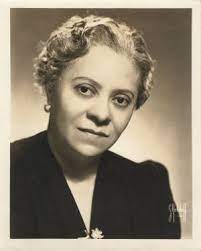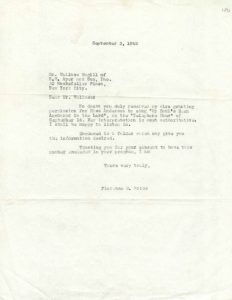In 1933, Florence Price became the first ever African American woman to make her symphony debut with a US orchestra, specifically the Chicago Symphony Orchestra. Florence Price was born in 1887 in Little Rock, Arkansas, to a family that surrounded her with music, especially her mother, Florence Smith, who was a singer and pianist. Surrounded by hate and discrimination, just after Jim Crow laws passed, Price established a foundation of musical literacy through the New England Conservatory of Music in Boston, Massachusetts. First starting her career through education, Florence soon changed paths after her troubling and abusive divorce. She traveled with her daughters to the heart of the Harlem Renaissance in Chicago, where she met influential musicians like Marian Anderson and William Dawson. Her compositional journey began with spirituals and then transformed into large-scale orchestral works. These works, like Symphony in E Minor, made her an extraordinarily influential and prominent black composer. Reflecting on the debate held in class based on readings such as Samuel Floyd, Rae Brown, or Jean Snyder, I believe the contributions that Florence Price makes to the African American community and the western classical realm are significant. Through these primary sources provided, I will explore this debate even further.
This primary source shown above is a correspondence from Florence Price to Wallace Magill, the director of Bell Telephone Hour, which “showcased the best in classical and Broadway music, reaching eight to nine million listeners each week.” This letter included Price’s gratitude towards the director in response to his acceptance of her spiritual “My Soul’s Been Anchored in the Lord” to be performed by her long-time friend Marian Anderson in the program on September 14, 1942. This letter gives excellent insight into how prominent and accepted Price had done her work in society as this popular classical radio show played her pieces alongside composers such as Beethoven, Kreisler, Brams, and many other great operatic stars. Consequently, I included a second primary source located in the music library entitled Art Songs and Spirituals by African American Women Composers. This source contains the exact sheet music of the song played on Bell Telephone Hour and lists it alongside other prominent spirituals.
My Soul’s Been Anchored in the Lord
It is abundantly clear that Price went through extreme trials and tribulations during her time as a composer and black woman, especially as one looks at the critiques from various musicians in the industry. However, it is evident through the abundance of performances and awards that Price achieved that she indeed influenced the entirety of not only the black musical spear but also the classical music realm. Her compositions and hold on the music industry lead us in one direction of the heavily discussed debate brought up early; classical music can lead to a whitewashing of black musical culture. Although, composers such as Florence Price prove that you can utilize classical music to both spread your name through white audiences and equally spread black culture in popular spaces such as she used Bell Telephone Hour to do. One question I might pose is, would Florence Price be as influential as she is if she hadn’t been as invested in orchestral works as she was?
Citations
Knight, E. (2020, October 28). Florence Price: The story of america’s forgotten musical genius. Music | Al Jazeera. Retrieved November 15, 2022, from https://www.aljazeera.com/features/2020/10/28/florence-price-americas-lost-musical-genius
Magill, W. (1945). Bell telelphone hour – OTR : Free download, Borrow, and streaming. Internet Archive. Retrieved November 15, 2022, from https://archive.org/details/Bell_Telephone_Hour
Price, F. (1942). Florence Price Letter to Wallace Magill, September 3, 1942, regarding Marian Anderson’s Performance of a Work by Price. CONTENTDM. Retrieved November 14, 2022, from https://digitalcollections.uark.edu/digital/collection/p17212coll3/id/10/
Taylor, V., King, B. J., Moore, U. S. (1995). Art songs and spirituals by African-American women composers. Hildegard Publ.


